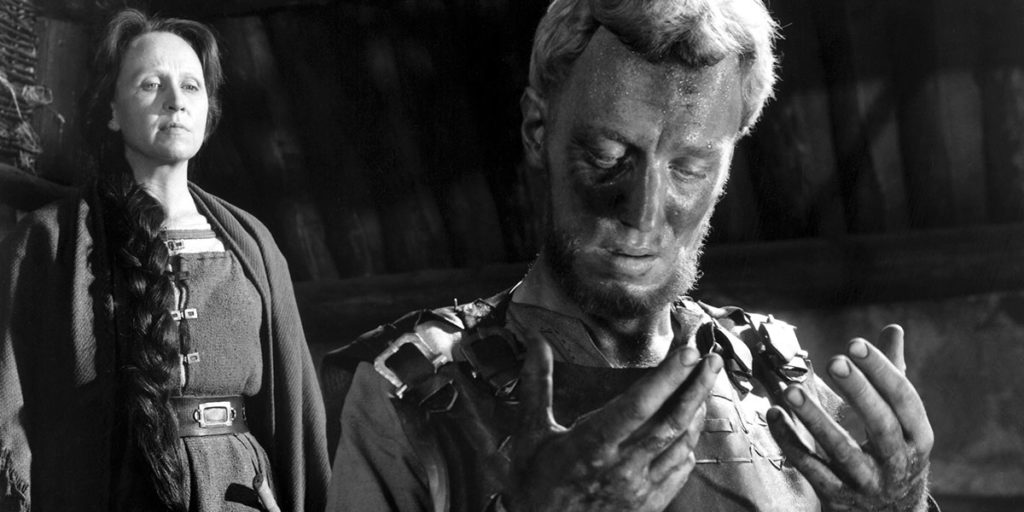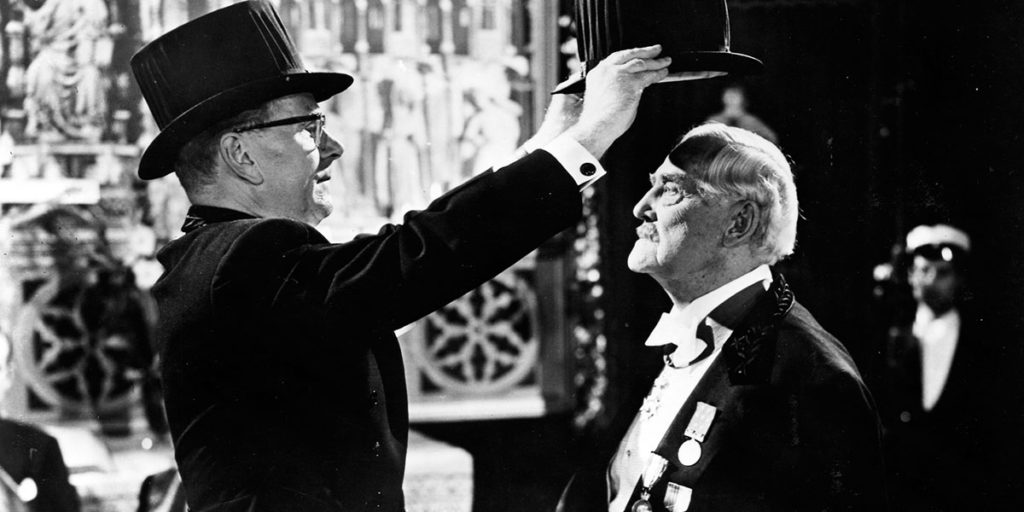
Swedish filmmaker Ingmar Bergman died in 2007, short of turning 90. He would have turned 100 a few months ago. And as trite as it sounds, as much as he’s no longer with us, his work lives on. And TIFF, doing their part, is going to be home to a touring retrospective. One that already made gangbusters in New York and London. I’ve only seen 9 of his films, and the retrospective will give me the opportunity to watch 19 more. The local completists will probably watch more. And the lucky few who have never seen a Bergman film ever are, well, just lucky.
That’s who ‘writers’ like me worry about, being part of a new generation who will be watching Bergman’s films. He’s great, but am I just going to parrot that? What am I even doing as a queer person watching and writing about movies that a dead white guy made? And Bergman’s not just a regular dead white guy. Sure we can see deeper meanings behind the personal, familial, and workplace conflicts that his movies depict. But outside of that his movies are bafflingly apolitical. He get high praise from critics, which he deserves, but why again? These are the same critics who can’t even find the right words to analyze directors who are relevant today. Bergman was probably asking different questions while doing a kind of soul searching that contemporary audiences are also embarking on.
Audiences have an inherent fascination with their dad’s favourite auteurs the same way those auteurs looked at the past. Take Wild Strawberries, for example, where he shows how people watch the world change. Isak Borg (Victor Sjostorm) lived through the Gilded Age and the postwar era. He’s obviously so old in the latter that institutions shower him with honorary degrees. On the way he meets a hitchhiker, Sara (Bibi Andersson), who thinks he’s a cool guy. That contrasts the view of his daughter-in-law (Ingrid Thulin) who has reasons to resent his ways.
Sara also reminds Isak of his first love, Bergman showing us human malleability. Everyone unconsciously carries history and ideology in our faces and bodies. In seeing people, especially young people this way, he shows that he sees a lot in young people and likes them. Bergman will get more bourgeois n time and maybe a little grumpier but that philosophy and weary optimism stays with him at least four decades after he gets his first wind. The same is true in Summer with Monika. This arguably has one of his many unsympathetic female protagonists (Harriet Andersson) but he still roots for her.
Wild Strawberries show the phenomenon where people sympathize with those who belong to their grandfather’s generation instead of their fathers. We can see the same divide within female characters, like in Autumn Sonata, a film that will probably have different interpretation depending on someone’s age or mood. Either it’s Eva (Liv Ullmann) blaming everything wrong in her life on her visiting mother Charlotte Pendergast (Ingrid Bergman). Or that it represents the existential dread that every parent faces – that everything you do for your child to show your love is wrong.
In Persona, the age difference between Alma (Bibi Andersson), a nurse and the person she’s taking care of, Elisabeth Vogler (Ullmann) aren’t seismic but their personalities are. Alma is talkative while Elisabeth suffers from an extreme version of selective mutism. She only communicates to friends through letters that express how little Alma means to her. Silence is Elisabeth’s weapon to show her contempt, or at least to show how she’s above Alma.
Youth is life and hope to Bergman, although yes, he’s guilty of idealizing them. They exist, albeit in traces, in his versions of medieval fantasy films like The Seventh Seal. Sweden during that historical period is rough, as he shows us that it’s full if people with long standing grudges and bitter memories, just like people nowadays. But its protagonist Antonius Brock (Max von Sydow) is different from the pack. He chooses life, choosing to join a travelling actress, Mia (Bibi Andersson). He’s doing that while playing that iconic chess game with Death (Bengt Ekerot).
The Virgin Spring is an equally grim version of that time period, if not more, where bandits, including a boy, rape and murder Karin (Birgitta Petersson). The way he characterizes her is reminiscent of how his idol, playwright august Strindberg, idealizes and tortures young women. Her death urges her father Tore (von Sydow) to avenge her. And this act shows Bergman’s ambivalence. It shows that the youth are worth fighting for yet showing revenge’s futility. Perhaps it reflects the dichotomy within most people who are both capable of cruelty and guilt, becoming victims of that cycle instead of being able to stop their urges.
Bergman’s perspective towards youth, neuroses, and different ideologies are equally prevalent during his Gilded Age period pieces. In Fanny and Alexander, Emilie Ekdahl (Ewa Froling) marries Bishop Edvard Vergerus (Jan Malmsjo), who ends up both abusing her and her children (Bertil Guve and Pernilla Alwin). Emilie and Edvard will have many marital rows, one of them includes telling him about her God. Her eventual rebellion against Edvard’s strict Protestant faith is always refreshing. Bergman reminding us that subversion has always been and will always be present despite history’s whitewashing of them.
Cries and Whispers has a more pessimistic approach in depicting the death of Agnes (Harriet Andersson). Her death symbolizes a power imbalance in her family. She and her sister Anna (Kari Sylwan) were believers while Karin (Thulin) and Maria (Ullmann) see faith and mourning as a performance. Karin sees the traps in her bourgeois, gilded lifestyle, which seems incomprehensible to viewers today. But her masochism manifests as narcissistic. This was my first Bergman, and watching Karin and the other sisters feel like we’re studying aliens. But it’s always nice to see films like this that challenge us.
Bergman 100: The Ingmar Bergman Centenary plays at TIFF between October 24 to December 23. That’s two full months, including a whole week where they show The Seventh Seal every day. For showtimes and tickets go right here.


